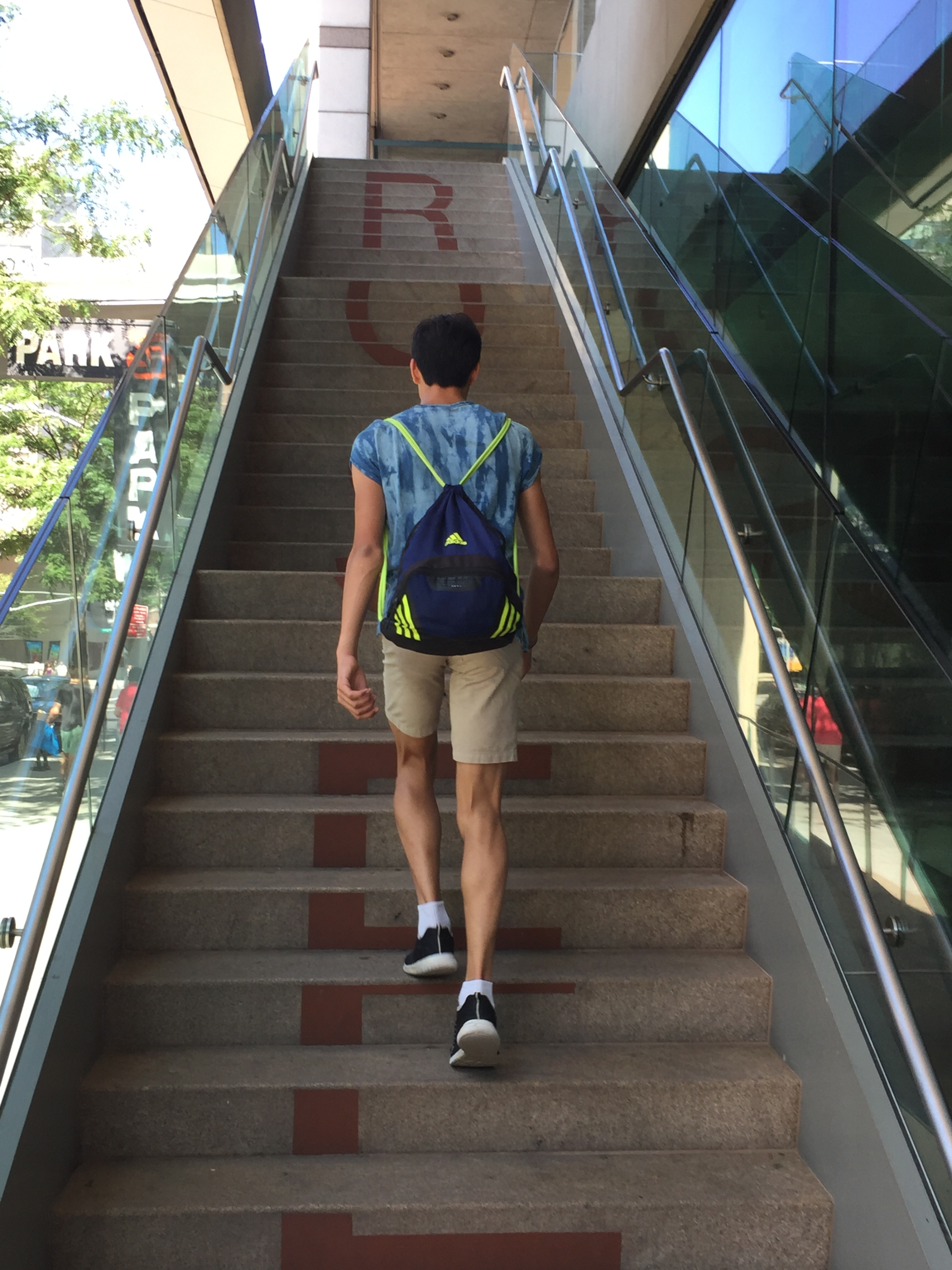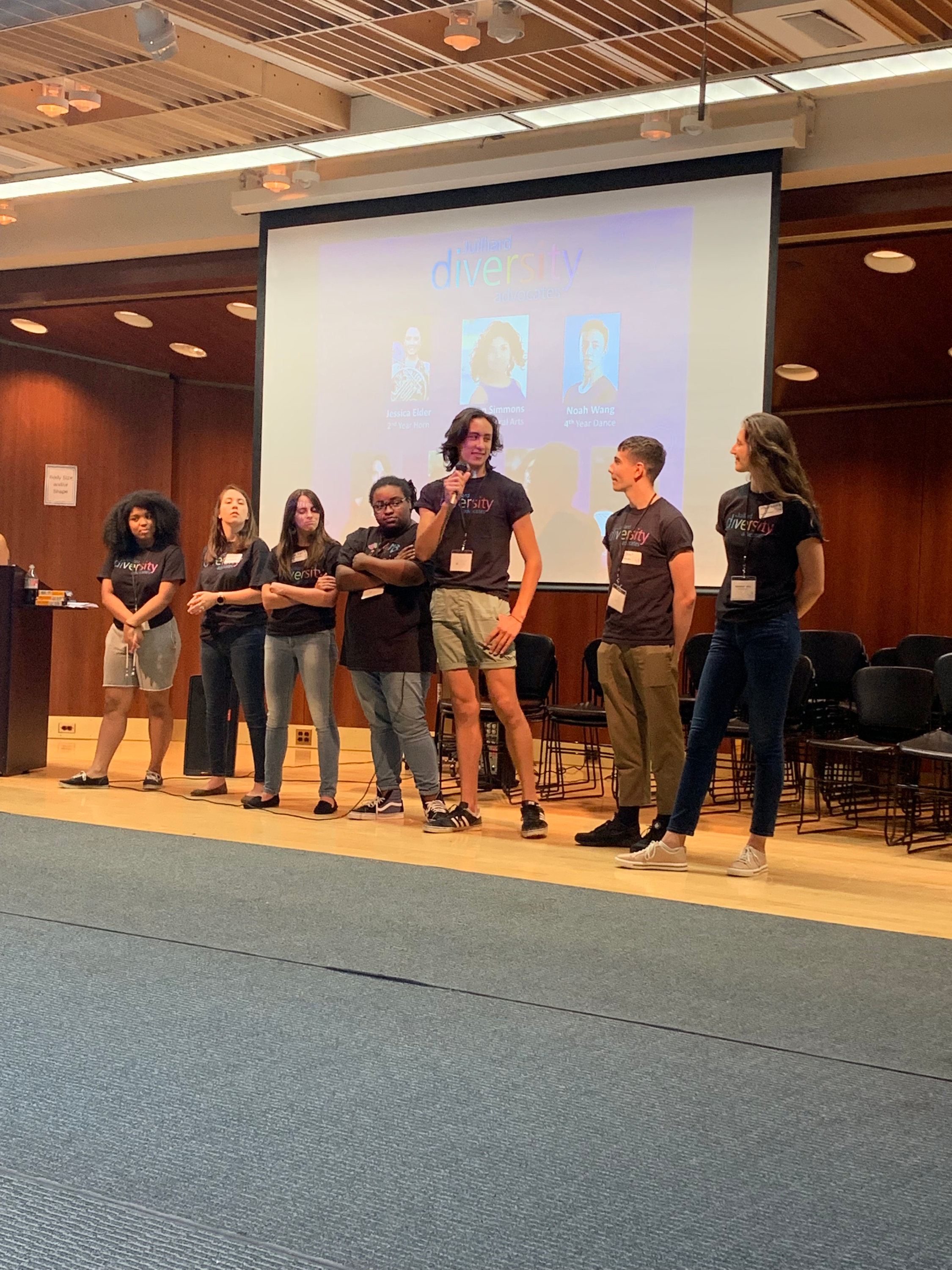
When I came to Juilliard at the age of 18, I wanted nothing more than to become a good dancer.
To me, that meant precise technique and physical virtuosity. However, the vibrant, multi-faceted reality of Juilliard has shown me that while those things are necessary, they are not what make you a truly good artist. As I enter my senior year, I am redefining what it means to be good and do good in the world through my craft.

Being a good dancer and artist involves discipline, passion, emotional and physical intelligence, patience, and engagement with the community. Before Juilliard, I thought that good technique was more important than all other aspects of dance. Juilliard has taught me that technique exists to uplift dancers, along with everything else that makes us unique individuals, rather than to shame us for not fitting into the idealistic form of the body.
I also realized that the definition of the word "technique" is relative to the world and culture I am participating in. I was trained in classical ballet, so I judged what was "good" based only on one specific set of values. My three years here have exposed me to countless other schools of thought, where the values and priorities are organized differently. For example, while ballet values lightness, ease, and simplicity of line, a modern technique like Graham has an intrinsic weight to it, and often creates more complex curves in the body. I have found that in order to be good at both, I have to employ different mindsets and physical habits in each space.
Beyond all of my investment in the dance studios, Juilliard has also taught me lessons that I have taken into my personal, professional, and non-artistic life. Being a Diversity Advocate on campus, for example, has played a large role in my growth. I get the opportunity to plan educational programs, as well as facilitate conversations within the Dance Division and across division lines with other students, faculty, and staff. Diversity advocacy has encouraged me to use my own experiences, good and bad, to make Juilliard better for everyone, including those who will come after me.

Despite all this, I think the greatest force of good in my life at Juilliard is my peers. I learned within my first few years that I would not be able to sustain my body, mind, and spirit without a support system of friends. They are my source of joy, trust, stability, motivation and inspiration. My dance friends and I all share a common culture and understanding, while my friends in the music and drama divisions provide fresh perspectives, pushing me to think about art in new ways.

Juilliard means many things to me. It is an institution of rigor, passion and grit that presents new challenges every day, so many that they can sometimes feel unachievable. But with each challenge comes a small victory, lesson, or epiphany that adds up to unimaginable amounts of personal and artistic growth. Juilliard is also a thriving community of people who are constantly teaching me new ways to put goodness out into the world.
There is no ideal or prescribed path through Juilliard. Who you are in every moment at this school is exactly who you are supposed to be, and it is because of our amazing, accepting, ever-evolving community that we are allowed to do this. And that is the ultimate gift of being here.
What is so important and magnificent about our complex identities is that they have led each of us on our own wild journeys from the moment we were born—some of us with more setbacks than others—to end up here, in the same room, with the same visceral passion to create and express through art. There is no ideal path to Juilliard, there is no ideal path through Juilliard, and there is no ideal path beyond Juilliard. Who you are in every moment at this school is exactly who you are supposed to be. And that is the ultimate gift of being here.
So yes, what we decide to do with our lives, and what we accomplish makes us colorful and productive beings, but we cannot approach our crafts as anyone other than our full, complex selves. We cannot leave behind everything that came before us.
Attend a student performance on campus.